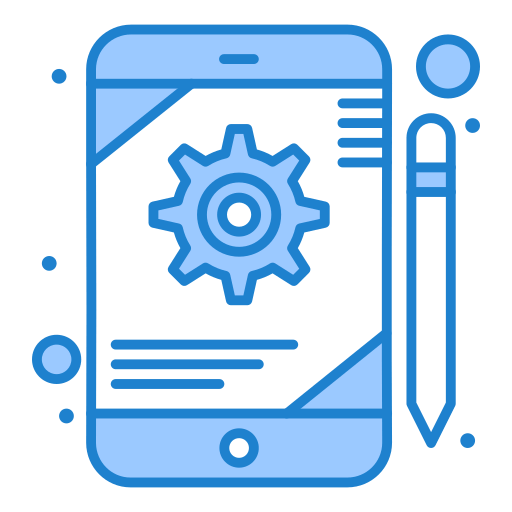
 Personalization techniques for proposals refer to the strategies and methods used to tailor sales proposals to the specific needs, preferences, and characteristics of a potential client or customer. This approach is crucial in sales proposal management as it significantly enhances the relevance and appeal of the proposal, thereby increasing the likelihood of winning the business.
Personalization techniques for proposals refer to the strategies and methods used to tailor sales proposals to the specific needs, preferences, and characteristics of a potential client or customer. This approach is crucial in sales proposal management as it significantly enhances the relevance and appeal of the proposal, thereby increasing the likelihood of winning the business.
 Personalization in proposal management involves several technical aspects, including data analysis, customer segmentation, and customized content creation.
Personalization in proposal management involves several technical aspects, including data analysis, customer segmentation, and customized content creation.
The goal is to create a proposal that resonates with the potential client on a personal level, addressing their unique challenges and goals. This requires a deep understanding of the client's business, industry, and competitive landscape.
Solutions to these problems often involve the use of CRM (Customer Relationship Management) systems to gather and analyze customer data, advanced analytics to segment the data, and creative writing skills to craft a proposal that is both informative and compelling.
 Case Study 1: Tech Solutions Inc.
Case Study 1: Tech Solutions Inc.
Tech Solutions Inc. used personalization techniques to win a major contract with a retail giant by analyzing the client's purchase history and tailoring the proposal to highlight products that had the highest turnover rates. The proposal included data-driven recommendations for inventory management that were specific to the client's sales patterns.
Case Study 2: GreenBuild Construction
GreenBuild Construction personalized their proposal by incorporating details about the client’s commitment to sustainability. They included a section on how their building materials and methods would align with the client’s corporate social responsibility goals, which significantly strengthened their proposal.
 To effectively implement personalization techniques in your proposals, consider the following best practices:
To effectively implement personalization techniques in your proposals, consider the following best practices:
 For further reading and more in-depth information on personalization techniques in proposal management, consider the following resources:
For further reading and more in-depth information on personalization techniques in proposal management, consider the following resources:
Implementing these personalization techniques can transform your proposal process, making your proposals not only more engaging but also more effective at winning new clients.
Personalization techniques for proposals involve tailoring the content and presentation of a sales proposal to match the specific needs, preferences, and characteristics of a potential client. This can include customizing the proposal's language, emphasizing relevant products or services, and incorporating data or insights specific to the client's industry or business challenges.
Personalization is crucial in sales proposal management because it helps to build a stronger connection with the potential client. By demonstrating an understanding of the client's unique needs and challenges, personalized proposals are more likely to resonate with the client, thereby increasing the likelihood of winning the business.
To effectively personalize a proposal, gather information through client meetings, review of their business website, industry reports, and prior interactions. Understanding the client's business goals, challenges, and competitive landscape is key. Additionally, asking direct questions about their specific needs can provide valuable insights.
Examples of personalization in a sales proposal include using the client's business name and logo, referencing past projects or discussions, highlighting case studies or testimonials from similar industries, and proposing solutions that directly address the client's stated objectives or pain points.
Several tools can aid in personalizing sales proposals, including CRM software to track client interactions, proposal management software with customization capabilities, and data analytics tools to analyze client behavior and preferences. Integrating these tools can streamline the personalization process and enhance the effectiveness of your proposals.
Unlock the secrets to customer success! Learn how strategic communication during the offer process can build trust, manage expectations, and drive long-term business growth. Dive into our comprehensive guide now!
Discover why swiftly personalizing offers boosts sales, enhances customer loyalty, and keeps you ahead in the competitive market. Tailor-made solutions are key to success!
Boost your business efficiency! Discover how using offer templates and sample letters can save you time and enhance professionalism. Learn tips to customize them to your needs.
Discover how to fast-track business success by optimizing your offer approval processes. Learn strategies to streamline workflows, automate tasks, and empower decision-makers for better efficiency.
Understanding the dynamics of proposal management and promoting collaboration are essential elements to increase conversions and achieve sales goals. This article explores strategies to improve collaboration in evaluating proposal templates.
In today's competitive environment, companies are constantly looking for innovative ways to ensure customer satisfaction and loyalty. This article examines ten actionable techniques for seamlessly implementing proposal management into your customer success framework.
Proposal management plays a critical role in the success of any business, regardless of industry. In this introductory article, we delve into the intricacies of proposal management and examine its key components and best practices.
Discover how to transform leads into sales with top CTA strategies! Learn about compelling language, urgency, design, personalization, incentives, testing, social proof, and more. Boost your conversions now!
Unlock the power of visuals in digital marketing! Discover how effective graphics can boost offer conversions, enhance user experience, and strengthen brand identity. Learn to optimize visuals for every device and measure success with precision.